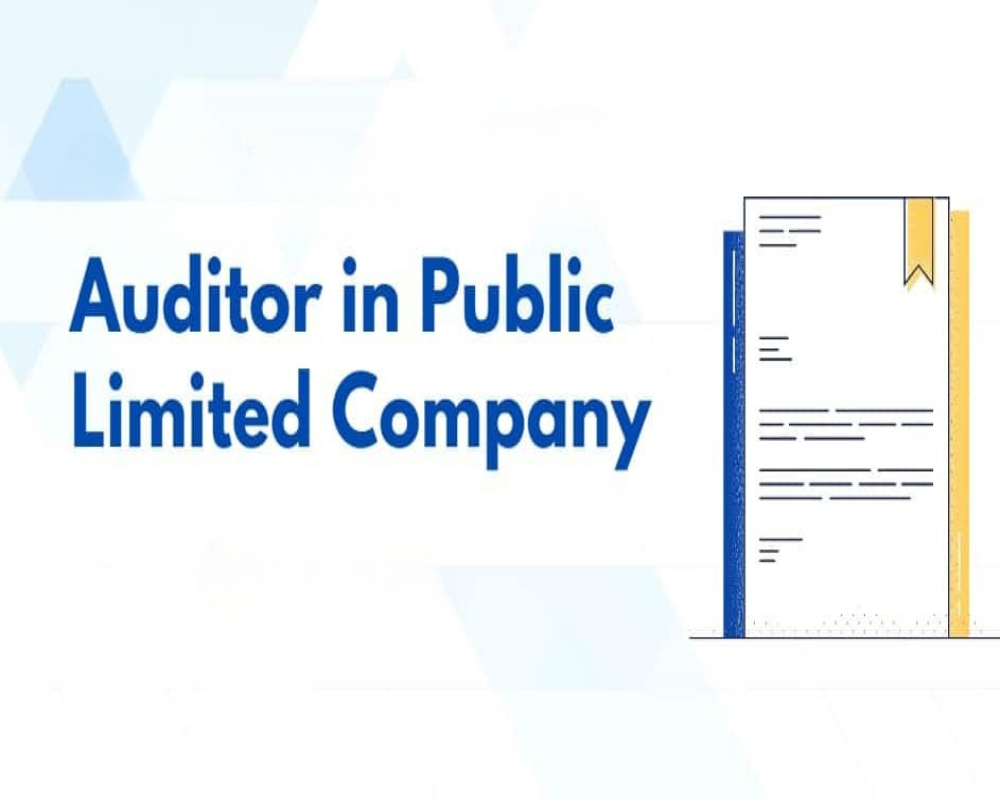Auditor’s Report in Public Limited Companies
Introduction
The auditor’s report is a formal opinion issued by the statutory auditor after examining a Public Limited Company’s financial statements. It is a vital part of the company’s annual report and is required under the Companies Act, 2013. The purpose of the auditor’s report is to provide stakeholders with an independent assessment of whether the financial statements present a true and fair view of the company’s financial position and performance. This article provides a structured overview of the auditor’s report in the context of Public Limited Companies.
Legal Requirement
Under Section 143 of the Companies Act, 2013, every Public Limited Company must appoint a statutory auditor who is responsible for auditing the company’s financial statements. The auditor is required to submit a report to the members of the company at every Annual General Meeting (AGM). The report must be based on professional standards and auditing practices as prescribed.
Objective of the Auditor’s Report
The main objective of the auditor’s report is to give an independent opinion on whether the financial statements of the company comply with accounting principles and legal requirements. It provides credibility to the financial statements and reassures investors, lenders, and regulators that the company’s financial disclosures are reliable.
Components of the Auditor’s Report
A standard auditor’s report includes several key components:
- Title and Addressee
- Opinion Paragraph
- Basis for Opinion
- Key Audit Matters
- Responsibilities of Management and Auditors
- Other Legal and Regulatory Requirements
- Signature, Auditor’s Name, and Date
Each section serves a specific purpose in conveying the scope, findings, and conclusions of the audit.
Types of Audit Opinions
Based on the audit findings, the auditor may issue one of the following opinions:
- Unqualified Opinion (clean report) – financial statements are accurate and comply with laws.
- Qualified Opinion – financial statements are fairly presented except for specific issues.
- Adverse Opinion – financial statements are materially misstated.
- Disclaimer of Opinion – auditor could not obtain sufficient evidence to form an opinion.
The type of opinion issued significantly impacts stakeholder perception and decision-making.
Reporting on Internal Financial Controls
For listed and certain unlisted companies, the auditor must report on the adequacy and effectiveness of the company’s internal financial controls over financial reporting. This section helps identify weaknesses in risk management, control systems, and process efficiency.
Reporting of Fraud
The auditor is obligated to report any fraud discovered during the audit. If the fraud involves an amount above the prescribed threshold, it must be reported to the Central Government. Fraud reporting enhances accountability and deters financial misconduct.
Other Regulatory Disclosures
The auditor’s report may include disclosures required under SEBI regulations for listed companies or other statutory guidelines. This includes matters such as pending litigations, compliance with statutory dues, and observations from earlier audits.
Importance for Stakeholders
The auditor’s report is a critical tool for shareholders, investors, financial institutions, and regulators. It provides assurance that the financial statements reflect the company’s true performance and financial condition. A clean audit report builds trust, while a qualified or adverse opinion may signal underlying issues.
Conclusion
The auditor’s report is an essential component of financial accountability and transparency in Public Limited Companies. It ensures that the financial statements are accurate, complete, and compliant with applicable standards. By providing an independent evaluation of the company’s finances, the auditor’s report reinforces investor confidence, supports regulatory compliance, and upholds the integrity of corporate governance.
Hashtags
#AuditorsReport #PublicLimitedCompanies #FinancialTransparency #CorporateGovernance #AuditOpinion #FinancialStatements #Compliance #Accountability #InvestorConfidence #BusinessIntegrity #FinancialReporting #AuditProcess #StakeholderTrust #RegulatoryCompliance #CompanyPerformance #RiskManagement #AuditFindings #TransparencyMatters #FinancialHealth #CorporateResponsibility


0 Comments